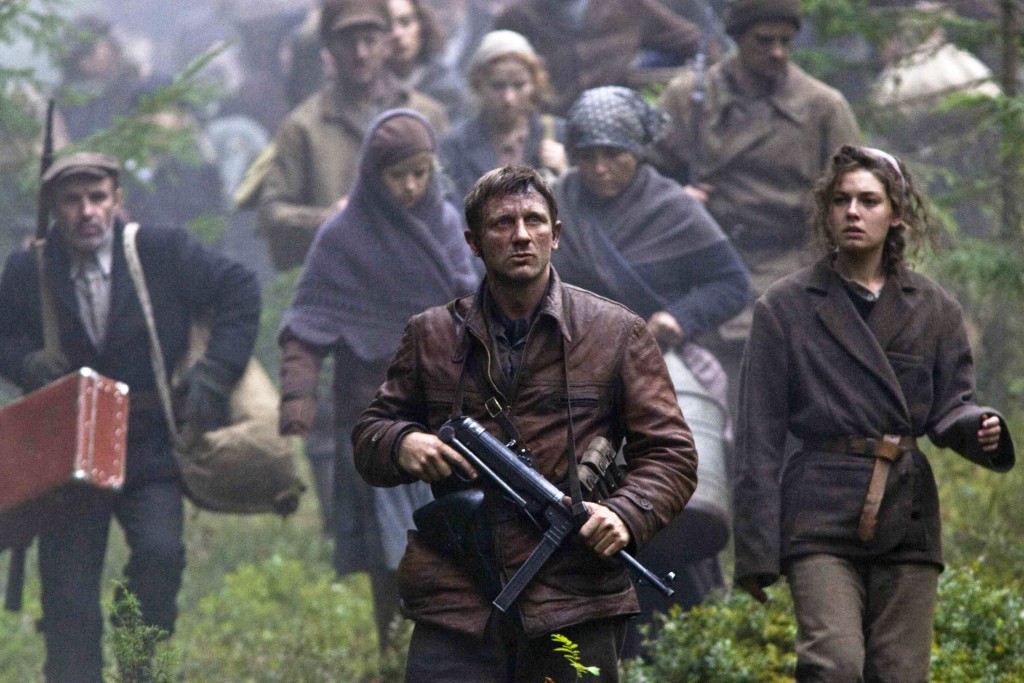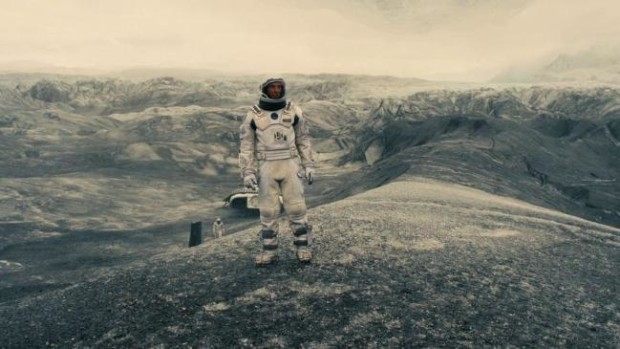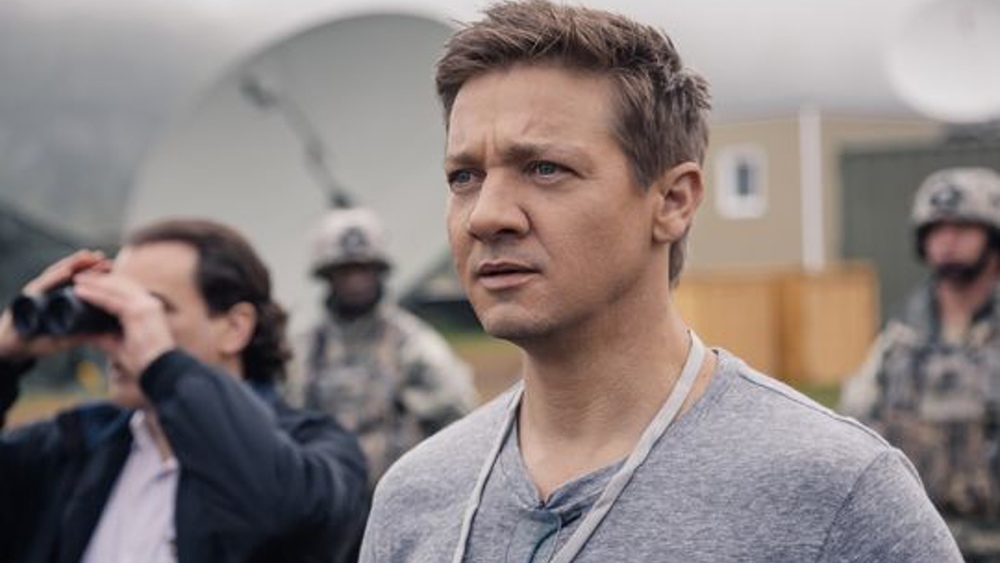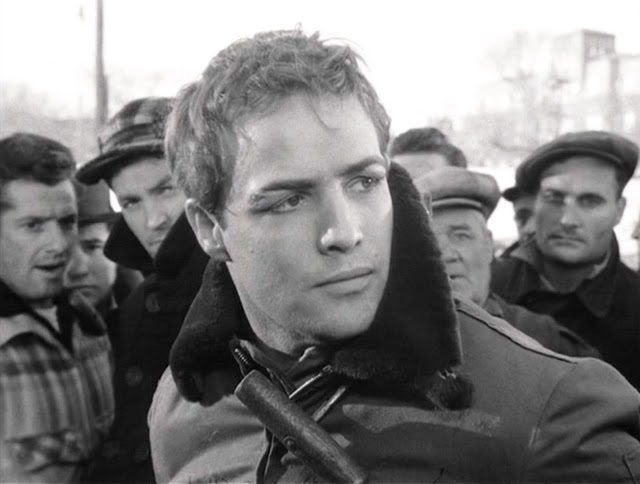Search Results for: F word
Hey guys, sorry for the lack of posts. I enjoyed the holidays too much, apparently. So here’s how this week is going to work. This is TUESDAY’S post. Wednesday is another review. Thursday is an article. Friday is the Scriptshadow Tournament. The good news is that tomorrow or Wednesday, I’m sending out a NEW NEWSLETTER! And I review a really good script from a really good screenwriter. Or, at least, it’s good so far. :) So make sure to sign up for the newsletter at Carsonreeves1@gmail.com.
Genre: Period/World War 2
Premise: A paratrooper finds himself stranded behind enemy lines when his plane goes down while on one of the most important missions of World War 2. Can he still complete the mission in time?
About: EDIT (UPDATE) – Oh wow, they just attached Bradley Cooper hours after review went up. Talk about timing this just right. :) Zach Dean is a mainstay on the Black List. This is either his 3rd or 4th entry on the list, and his writing seems to get better each time. This one finished on the lower half of the 2015 List. Atlantic Wall was sold in PITCH FORM in a competitive bidding situation. That’s what happens when you’re getting on the Black List every year, boys and girls. Companies start competing for your scripts!
Writer: Zach Dean
Details: 116 pages
If you’ve been here long enough, you know how I feel about World War 2 stories. There are in the neighborhood of 300 movies about World War 2. So if you’re going to bring a new story to the table, it better be unique. One of my favorite World War 2 movies is Life is Beautiful because it’s a CONCENTRATION CAMP COMEDY. How could that movie NOT be unique??
What I don’t like is when writers use a generic World War 2 situation that isn’t that interesting just so they can slap that “World War 2” label on their logline. Like that Daniel Craig movie – what was it? Defiance? About a bunch of people who lived in the woods during World War 2 (“We must go deeper into the woods, Frank.” “Deeper? But we’re literally 100 miles from civilization.” “God dammit, Frank, I said DEEPER!”) WHAT THE FUCK WAS THAT MOVIE????
My favorite talk show right now is, by far, James Corden. My least favorite is Seth Meyers. The reason Corden is so good and Meyers is so forgettable is because James Corden asked the question, “What do we bring to the table that the other talk shows don’t?” Or, more to the point: “Why do we deserve to exist?”
By asking that question, they had no choice but to differentiate themselves. So they added a multi-interview format instead of one guest at a time. They created segments that were online friendly (Carpool Karaoke) and dance numbers (Intersection Musical). Meanwhile, what does Seth Meyers do? He brings the exact same no-frills format that talk shows have been using for 50 years and his late-night show is the least watched as a result.
This is a long-winded way of saying, your idea must have a reason for existing. If you’re just writing something because it has a cursory attachment to a high-profile event, it’s going to reflect in the execution. One of the reasons it’s taken me so long to read this Black List script is because I was afraid that was the case. I’m hoping I’m wrong. Let’s find out…
It’s 1944 and Britain is about to enact something called Operation Overlord, where they’ll fly over the channel and invade Nazi-occupied France. However, there’s a secondary component to this attack.
France has been using secret operatives who have been meticulously marking where all the key German gun points are. With this knowledge, the British-American Coalition will know exactly where to land, which areas to avoid, and how to attack to destroy the Germans. Without this information, they’d be walking in blind.
There’s only one issue. The map has only just been finished. And the attack is launching tomorrow. This leaves American Captain, Lowry Scott, and his team, just a tiny window to get in, grab the map, and get out.
So Scott and his team fly in. Everything seems to be going well. And then Scott’s plane gets shot down. Scott is the only one to survive, and finds himself having to evade the entire Nazi army to get to the rendezvous point.
Once there, Scott secures the map, but not without needing to slaughter a clan of curious Nazis. His attache, close to death, makes Scott promise he’ll take his 10 year old son, Jasper, to his sister. Jasper, ironically, is the one who performed all the reconnaissance for his father and is responsible for this invaluable map.
An annoyed Scott pairs up with Jasper and is able to fulfill his end of the bargain. But when a traitor disrupts the French resistance, Scott and Jasper will need to come together once again to both get out alive, and get that map to the higher-ups so that the invasion can be a success.
This was a lot better than I thought it would be.
There’s one thing you can learn right away from this script and it’s an approach all writers should hang their hat on. When you have a big idea, you want to find the small personal story within it.
A lot of writers will take an idea like this and cut between seven different groups of characters as they all get ready for the big invasion. It’s a common mistake when doing a period or war film and it results in too much jumping around where we never get to know or care about anyone, and therefore don’t give a shit what happens.
What Dean does here instead is he finds this personal story to tell. Our hero teams up with a kid and the two must escape an entire occupied country that’s looking for them.
This leads to the second thing Dean does well: GSU (goal, stakes, urgency).
Goal: Get the map back to his superiors.
Stakes: If he doesn’t, an entire operation will fail, and hundreds of thousands will die.
Urgency: The invasion is happening that day. So he needs to achieve this FAST.
When you combine this with an unresolved relationship between our two leads, Scott and Jasper, you have yourself the ingredients for a kick-ass movie.
This is where the World War 2 tag HELPS your script – when you’ve written something good. Because it acts as a PUBLIC IP in that everyone’s heard of World War 2. So, naturally, it’s easy to promote.
In a film market where everyone (and when I say everyone, I’m talking about the studios as well) struggles to make consumers aware of their product, paying hundreds of millions of dollars to do so, it’s nice to have something well-known in your back pocket (World War 2) to instantly create recognition.
Think about how hard it’s been for them to promote spec scripts Passengers and Collateral Beauty this holiday season. There’s nothing either film can throw at you that creates instant recognition besides movie stars. And movie stars, strangely, aren’t enough anymore.
In addition to this, Dean has researched the shit out of his script, making sure we believe what’s going on. I bring this up because there’s nothing worse than a World War 2 script where it’s clear that the writer doesn’t know a) How war really works, b) the unique details of World War 2 including weapons, vehicles, and protocol, c) the fine print of the subject matter he’s writing about.
I’m not saying the writer should go into exquisite detail about each German gun being shot (more on this in “What I Learned”). I’m saying that we never question any object, person, or interaction because they all felt so damn authentic.
And yet, despite this elaborate research, Dean never forgets to entertain. This is another common amateur mistake. Writers will get that research down, but then that’s ALL they get down. Everything is meticulously described and yet we’re bored to tears because nothing fun or dramatic is happening.
We get lots of Entertainment 101 scenes here, like the dickhead SS officer prepping to kill Julian for accidentally splashing water on his shoes. Or we get to know Scott’s entire team, only for them to be blown to pieces before the mission. That’s how you entertain – throw a plot twist in there that we’d never expect.
Atlantic Wall is a really well-researched fun romp with lots of GSU and, in my opinion, Dean’s best script to date.
[ ] What the hell did I just read?
[ ] wasn’t for me
[xx] worth the read
[ ] impressive
[ ] genius
What I learned: If there isn’t a lot of dialogue in your script, make sure you’re focusing on ACTION rather than DESCRIPTION. In other words, write less about what we’re looking at and more about WHAT THE CHARACTERS ARE DOING. As long as you’re documenting action, the reader feels that SOMETHING IS HAPPENING and is therefore less likely to get bored. It could be cleaning a house. It could be charging up to a bully to settle a score. It could be adding another target to the Operation Overlord map. What you don’t want is a lot of description of rooms or fields or people or vehicles. That’s not to say you won’t describe things. You’ll just do it quickly, expanding only if the moment is really important. But, for the most part, description equals to boredom. Focus on what your character IS DOING instead.
Genre: Science-Fiction
Premise: After earth becomes uninhabitable, a ship is sent into deep space to look for mankind’s next planet.
About: S. Craig Zahler is back. For the holidays! I mean what says “holidays” better than the man who brought us death by hamster insertion? The Brigands of Rattleborge and They Repair Us writer hits us today with some hard sci-fi. Let’s see how juicy an S. Craig Zahler science-fiction script gets! This seems to be an early draft (it’s called “Draft A”) so take that into consideration ya little turkey thieves.
Writer: S. Craig Zahler
Details: 156 pages (c’mon, what did you expect) – “Draft A”
It only makes sense after the last couple of days at Scriptshadow that we’d want to get as far away from planet earth as possible. And who better to take us there than the Director of Description, the Pioneer of Prose, S. Craig Zahler himself.
Before I summarize the story, I want to say that the “Leave Earth To Find A New Planet” scenario is one of the oldest plots in science-fiction. We saw it with Avatar. We saw it with Interstellar. I’ve even read three amateur scripts dealing with this subject matter in the past six months.
This setup requires embracing the un-obvious. Just like a romantic comedy writer has to find new ways into a romantic comedy so that it’s not just another romantic comedy, you, as a science-fiction writer, need to find new ways into old setups like this one so they’re not just another “leave earth and find a planet” flick. And since Zahler invented the un-obvious, I’m hoping he can do just that.
The first ten pages of “Conflicts” thrusts us through 150 years on earth. Our environment is going to shit cause we’re lazy assholes, which gives rise to fringe religious groups who take advantage of peoples’ fears. Religion meets terrorism. Attacks on the rich are made. It turns out Leo was right, and it’s only a matter of time before this garbage can we call “home” is uninhabitable.
So we build Elysabeth, a self-sufficient self-intelligent ship that’s capable of putting a thousand bodies on ice while it searches the universe for habitable planets. This is one weird ship. They’ve peppered it with hundreds of HUMAN EYEBALLS that stare out into the nothingness of space while we jet-set around on our intergalactic road trip.
Eventually, after 600 years, we find a planet that, because the ship is run by a bunch of boring scientists, we name, “Option 1.” Option 1 is not ideal. While it’s got rocks and water, it also has temperatures that swing 100 degrees in a matter of minutes. Not exactly beach living. Unfortunately, Elysabeth is falling apart, so they’ve got no choice but to make Option 1 their only option.
After exploring Option 1 for a few weeks, they come across a tiny group of intelligent beings who live inside a hollow mountain. These brash beasts invite the humans to build their own village next to theirs.
Meanwhile, a few religious nuts who stowed away in the cryo-beds want to kill everyone on Elysabeth then hijack the ship back to earth, where they plan to unfreeze their cryogenically frozen children that they’ve hidden underground. Yeah, cause that sounds doable. “Hey guys, I know it’s been 1700 years. But wake up!”
All of this implies the inevitable, that mankind is probably going extinct. If it’s not the planet, it will be the aliens. And if it’s not the aliens, it will be each other. Unless, of course, our crew can pull it together. But with noted pessimist Zahler at the controls, I sincerely doubt that’s going to happen.
I don’t know what to make of “Conflicts.” Either it’s an early draft or one of Zahler’s rare misfires. Notice how in my breakdown, I didn’t mention any characters. That’s not by accident. I couldn’t find any.
We bounce around between so many people that we never identify a protagonist. And I’ll tell you right now, if there’s one choice a screenwriter can almost NEVER recover from, it’s not having a clear protagonist. Readers are desperate to identify with and see the story through someone’s eyes. If you don’t give them that, they’re confused. But more importantly – DISTANCED.
Think of a story as a mother. And you, the reader, are a baby. If you don’t have your mom carrying you around, taking you from place to place, you don’t know what the fuck to do. You sit on the sidewalk and cry.
And the basic tenets of storytelling go out the window without a main character. You don’t have an active person driving the story. Which means you don’t have a strong goal. Which means no urgency. Which means no stakes. I guess you can include these things in the abstract. The “goal” is for the crew to find a place to settle. But without that one person who we feel close to leading the charge, it’s hard to care whether they succeed or not.
It’s the exact opposite of yesterday, where Ingelsby LOCKS US IN to one character and makes her SO DAMN SYMPATHETIC that even though nothing is technically happening, we still wanted to see what she’d do next.
That’s why, if someone were to put a gun to your head and say your script could only include character development or plot, not both, I’d tell you to go with character. Because people want to connect with other people, even if they’re imaginary. Nobody wants to find the Ark of the Covenant if Indiana Jones isn’t taking them to it.
There isn’t a single character in Conflicts who’s explored with any depth besides maybe Sven, a spoiled kid in his 20s whose father was a big-shot back on earth. And yet we barely know the guy cause we’re jumping around to so many other characters.
Another issue I ran across with Conflicts was backstory. And this goes back to yesterday’s script as well. One of the first things you learn in screenwriting is to come into the story as late as possible.
In other words, if you’re writing Star Wars, you don’t start six months ago, getting to know Darth Vader during a week-long vacation on Endor. You start ten minutes after the Death Star plans have been stolen with Darth Vader chasing your thieving ass.
Ingelsby threw this rule out yesterday, leisurely taking us through Deb’s daily routine for 27 pages before her daughter went missing. Zahler takes that to another level as we traverse 800 years in 30 pages before finally discovering Option 1.
In both cases, an argument can be made that we should’ve come in later. Do we really need 27 pages to set Deb and her daughter up? Do we really need 30 pages to set up how and why we left earth? Wouldn’t it have been easier to start with the characters waking up from cryo-sleep outside their new planet?
The reality is there’s no right answers to these questions. It’s a judgment call made by the writer. If you feel like you need extra setup, include extra setup. But I will say this. In screenwriting, it’s best to err on the side of less rather than more. It’ll benefit you to come in too late rather than too early.
But if we are going to come in early, I’d argue the long setup of Deb and her daughter was way more important to its story than the long setup of leaving earth was to Conflicts.
And I’ll tell you why.
Deb’s character is DEFINED by her loss. Everything she does is based on that loss. So it makes sense to draw out the relationship that led to that loss. With Conflicts, there’s no crucial character being built up here. In fact, all we’re doing is highlighting the same thing that happens in every “leave earth for other planets” story. The earth is dying. People are fighting each other. Build a ship. Leave.
That’s a key difference that I need you guys to realize. If your backstory is something the reader could’ve assumed on their own, you don’t need to show it. And, in this case, that could’ve saved “Conflicts” 30 pages.
With that said, I know we’re talking about Zahler. He doesn’t follow screenwriting rules and is usually better for it. Indeed, some of the trippy stuff he adds to our exit (spaceships with eyeballs??) can be used as an argument for their inclusion. But it’s always a balancing act. You have to balance what you like against what’s best for the screenplay. And I don’t think a backstory that’s 95% the same as every other backstory we’ve seen in these movies was best for Conflicts.
This early draft of Conflicts needed two things – a later entry into the story and characters we actually got to know. I have a feeling that if all Zahler had to concentrate on was getting us onto this planet and having strange shit happen to our characters, he could’ve written to his strengths, which, ironically, are really weird and powerful characters encountering memorably detailed fucked-up situations.
[ ] What the hell did I just read?
[x] wasn’t for me
[ ] worth the read
[ ] impressive
[ ] genius
What I learned: One of the first things you should ask yourself when you come up with a movie idea is how late can you start your story and how soon can you get out of it? I’ll give you the perfect example. Star Wars. That movie could’ve taken place over 2-3 years. Instead, it took place over 1 week. Contrast that with, say, Revenge of The Sith. Remember how wonky that plot felt? A big reason for that is because Lucas came into the story too early and got out too late. All in all, it took place over 8 months I believe? Yikes. That’s Disaster Sauce when dealing with plots. “Conflicts” could’ve benefitted a ton form this line of thinking, at least on the front end, when we came in way too early.
P.S. I’m not saying all movies need to take place over a week. I’m merely warning you that the longer you spread your plot out, the harder your story will be to tell. I guarantee that. So get in late and get out early. Even if it means changing your planned plot. For example, I’m sure George Lucas would’ve argued, “It had to be 8 months. Queen Amidala was one month pregnant at the beginning of the movie and the ending is her giving birth.” Okay, so get creative then. Ask yourself if you can start the movie with Queen Amidala already 8 months pregnant. That’s what this line of thinking is all about.
Genre: Sci-fi
Premise: When a series of alien ships arrive on earth, it’s up to a linguist to learn their language and find out what they came here for.
About: This was one of those half-assignment/half-spec type deals. Eric Heisserer adapted Ted Chiang’s short story. The project was considered low-priority. But when it came together, everyone realized the film’s flashy premise provided them with an opportunity to draw in a bigger audience. Paramount became the primary suitor, eventually picking it up after a stellar preview at Cannes, and it came out this weekend to a higher than expected box office of 24 million bucks. For perspective, a Marvel movie will cost 4 times as much and land in twice as many theaters. So this is a huge coup for Arrival. One of the hottest directors on the planet, Denis Villeneuve, directs Amy Adams, Jeremey Renner, and Forest “Rouge One” Whitaker.
Writer: Eric Heisserer
Details: 1 hour and 55 minutes
Coming out of Arrival, I had the same reaction half the country did after the election…
“What the fuck just happened?”
Arrival is a testament to exploring a big idea on an intimate scale. It’s a script that should be lauded for its commitment to deeper introspective storytelling. But it’s also a cautionary tale for screenwriters – both in how the system forces your hand and how time travel mechanics are the biggest minefield in screenwriting.
Arrival follows Dr. Louise Banks, one of the top linguists in the world. Louise recently lost her daughter to cancer and therefore drifts though life, allowing her professorial duties at the local college to distract her as much as possible.
Her life is violently interrupted when twelve alien ships that look like giant tear drops arrive, hovering over twelve of the biggest countries in the world. Just as Louise is taking this in, an army colonel named Weber shows up and tells her her services are required. They need to communicate with the aliens, and she’s the only one they believe who can do it.
Louise is paired up with Ian Donnelly, a scientist, and the two join a small team that go into the alien ship every 18 hours to try and develop a common language with the aliens so that they can communicate.
The process is slow-going, and they’re repeatedly getting pressure from the higher-ups to speed it along. The big dogs believe that the other countries are making faster progress, and word on the bike path is that the aliens might be here to offer us a weapon. In some sort of twisted game, whichever country wins the language war, they will receive the weapon, and, if they so please, have the rest of earth at their mercy.
It’s a classic tale of of the tortoise and the hare, as Louise wants to learn the language from the ground up in hopes of a comprehensive dialogue, whereas the other countries are learning a few key words quickly so they get the message faster, even if that means error-prone communication.
Who will win? And what is the weapon the aliens have at their disposal? That’s the million dollar intergalactic question, baby.
Arrival is an example of the sign of the times. No, I’m not talking about how aliens relate to our political reality or any such nonsense. I’m talking about how in the original story, China plans to take over the world.
Oh no, but we can’t portray China in a negative light! Like, literally, we’re not able to. China is in the process of investing money in all seven studios with the stipulation that they cannot be portrayed negatively in any of the movies their money funds.
So what we’re seeing is scripts like Arrival have to be rewritten. And the results are anything but ideal. Instead of the Chinese being bad guys like in the earlier draft, the Chinese are now heroes, bravely defending the planet by threatening the aliens.
This sets a ticking time bomb up for the final act, as Louise and Ian hurry to learn the last bits of the alien language in the hope that they can prevent this attack.
At first glance, it’s a subtle shift. The Chinese no longer want to harm us. They want to harm the aliens. But in terms of stakes, it’s everything. Our characters and the United States are no longer under direct threat. No matter how you dress it up, there’s less stake in this scenario than a chicken sandwich.
Sure, there’s still “connect-the-dots” stakes. If China attacks the aliens, the aliens may attack earth, and everyone dies. But this scenario isn’t as clear, and the connect-the-dots nature of it makes it less scary than if China was threatening the U.S. directly.
So how do you deal with this as a working screenwriter? You can’t. There are things you have no control over. Studios are going to ask you to change things you don’t want to change all the time. And all you can do is do your best.
What sucks about Arrival is that it compounds this decrease in stakes with a risky story choice – adding time-travel.
[major spoilers below]
While I will never say “Don’t use time travel” in your screenplay, I will heed you this warning: Time travel is the hardest thing to get right in storytelling.
It goes back to Terminator. As a singular movie, that film worked because it was so simple. You didn’t have to think much. But once a second Terminator appeared in the second movie, it got everyone thinking: “Wait a minute. If they fail, why can’t they just keep sending Terminators back, one after another until they succeed?” That’s the pitfall of time travel. It opens up so many fucking, “Well wait a minute…” questions.
And Arrival is no exception.
The “weapon” that the aliens give Louise? Is the ability to see the universe like them – without the constraints of time. So Louise has the power to see forwards and backwards into her entire life.
Okay, now here’s where things get tricky, so stay with me. The daughter she lost to cancer? That hasn’t happened yet. What Louise is remembering in the early part of the movie is the future, not the past.
That daughter she had, she had with Ian (her co-worker). Which begs the question, where is Ian in all these future memories? It turns out he left when Louise informed him that their daughter would eventually contract cancer.
We then go back to the end of the aliens’ visit, where a troubled Louise asks Ian that if he could live a happy life despite knowing something terrible was coming, would he change it? He says no, he’d still live that life. And that’s the end.
Okay so, let’s get this straight here. Louise is having memories of her dead future child when we start the movie because the aliens gave her the power to see time forwards and backwards, which goes into effect retroactively, giving her that power to see the future, essentially, right when she’s born.
So then how come she didn’t know the aliens were coming???
Apparently this ability to see the future is selective.
Also, where is Ian in these future memories if he’s the father? Oh right, he left. Because when Louise told him that their daughter would eventually get cancer, he was so mad that he deserted the fam.
Let’s think about that for a moment, shall we? You leave the woman you love and the daughter you love because you’re mad your wife told you she’s going to get cancer. Does that make sense to you? Wouldn’t you stay and fight and go to every doctor on the planet to find preventative measures to stop the cancer, especially since you already know which cancer it’s going to be?
A little more digging however, tells us the real reason Ian isn’t there. If Ian was there, we’d have known the “flash-backs” were actually “flash-forwards.” They needed Ian out of the picture to execute the sleight-of-hand. Hence the artificial reasoning for him leaving.
All of this is an elaborate way of saying: If you’re going to fuck with time travel, be prepared to take it on the chin. The more embedded time travel is in your plot, the more plot holes you’re going to have. Period. If you’re okay with that, go for it. But I promise you, they’ll be there.
Despite this frustrating issue, I still liked Arrival. I loved the realistic approach it took to the arrival. I loved the unique manner in which contact was explored (with language). On a filmmaking note, I thought the score was amazing. And I thought Villeneuve shot the movie in a mesmerizing manner.
There’s this flying tracking shot early on, where we helicopter into the base outside the ship, and we’re floating down and around the make-shift barracks, and the score is booming and the clouds are sliding off the nearby mountains and this majestic ship is silhouetted by the sun — that shot fucking sold me. The aliens could’ve communicated in farts and burps at that point and I still would’ve bought in.
So warts and all, this was quite the movie-going experience. Not to mention it’s a great discussion piece for screenwriters and filmmakers alike.
[ ] What the hell did I just watch?
[ ] wasn’t for me
[x] worth the price of admission
[ ] impressive
[ ] genius
What I learned: There is such a thing as too much subtlety, you know. Writers and directors who prefer subtlety are terrified of coming off too “on-the-nose.” In principle, I agree that on-the-nose is bad. But if you go to the other extreme, where you don’t give us anything, there’s a chance we might not catch what you’re trying to say. This love story between Louise and Ian is dealt with so subtlely, we don’t even know it’s happening. There’s no kissing, no touching, no compliments, no looks, not even a hint that they like each other. So when they get together at the end, it comes out of left field. It’s fine to be subtle. But you still have to give the audience SOMETHING to let them know what’s going on. Every payoff in your story must be set up on some level.
Genre: Drama/Conspiracy/Thriller
Premise: (from Black List) With America’s first viable independent presidential candidate poised for victory, an idealistic young journalist uncovers a conspiracy, which places the fate of the election, and the country, in his hands.
About: The Independent made the semifinals of the Nicholl Competition in 2013 before later finishing high on the 2013 Black List. Parter is new on the scene. This is his breakthrough screenplay.
Writer: Evan Parter
Details: 114 pages
Guess what day it is??
It’s ellllllllection day!!!
Yayyyy!!!
It’s time to vote for one of these two wonderful fault-free candidates we’ve decided are the best options to represent our country. And what better way to fire up those voting fingers than to review a political script?? Cause we all know how much I love politics. I talk about it all the time on Scriptshadow. Clintons, Bushes, Obamas. Sometimes this blog is so political, I might as well be blogging atop that big spire-like thing in Washington.
In all seriousness, I know very little bout politics, starting with what that spire-thing in Washington is named. In fact, I just learned a few months ago the purpose of voting for the Independent. I always used to wonder, “Why do people vote for this guy if nobody knows who he is?” But now I’ve learned that voting for the independent candidate isn’t a vote for them. It’s a vote against the system. You’re making, like, a statement with your vote that you don’t like America or something.
Might that be what The Independent is about? No idea. But who cares! I get to review a political script today. YAHOOOOOOO!!!!
Last year Nate Sterling wrote a book that sold 40 million copies and shot in him into the likability stratosphere. Sterling has used that buzz, as well as his innate charm, to climb the polls and become the favorite to win the United States presidency. The catch?
Nate is an independent candidate.
The United States has never had an independent president. So this is pretty unpresidented (heh heh – joke).
Across town, 28 year-old Eli Brooks isn’t exactly moving mountains like Sterling. But he’s an up-and-coming star at the Washington Tribune, the only paper in town that hasn’t succumbed to the evil internet news machine.
The chief editor at the paper implores his writers to hit hard and hit big. It’s the only way they can keep killing trees. And Eli’s got a story that’s going to knock out a rain forest. Eli believes that Republican presidential candidate and Sterling’s main rival, Roger Turnball, is siphoning money out of the state’s lottery coffers to pay for his campaign.
Eli lassos senior editor and mentor, Nate Sterling, into his conspiracy theory, and the two set out to prove Turball is a nasty dude. But just when the story’s coming together, they’re hit with a bombshell that will throw everything everybody thought they knew about Sterling on its head. The question is: Can they report it? And what will happen to them if they do?
Yikes.
This was so not a Carson script.
It had politics, politics, and… more politics! Had I paid more attention to the logline, I probably would’ve realized that.
Regardless of my personal feelings about politics, here’s my big issue with The Independent: It ignored its strange attractor.
Remember guys, your first order of business is to identify the strange attractor in your story. What is it that you’re bringing to the table that’s never been brought to the table before? I’d never seen the matrix before The Matrix. I’d never read a movie about a soldier who refused to use a gun before Hacksaw Ridge. I’d never seen a movie about magicians who pulled off bank heists before Now Your See Me.
However, that’s only THE FIRST PART of the equation.
The next part is that you must EXPLOIT THAT ATTRACTOR. In other words, you must show the soldier not using his weapon. You must show fighting that defies physics. You must show people using magic to steal money.
In The Independent, the independent candidate is your strange attractor. It’s what makes your movie unique. Yet there is nothing in here that exploits that. In fact, had you turned Nate Sterling into a Democrat, absolutely nothing about this script changes.
That’s when you know you’re not exploiting your concept. When you can change the attractor and nothing else in your script needs to be rewritten.
This script is more about a journalist trying to prove a presidential candidate is corrupt. I don’t know what that has to do with independent presidential candidates. And, quite frankly, that bummed me out. Because I don’t know much about the independent sector, and I was hoping that by the end of this script, I would know a lot.
Even if that wasn’t a problem for you, I was baffled by the fact that this script is titled “The Independent,” and yet 90% of the movie focuses on a journalist. Why aren’t we focusing on the most interesting part of your concept?
It just seemed odd to me.
As for the rest of the script, it was a mixed bag. I found the dialogue to be great when it was quick and punchy (“Listen up, buddy. Only eyes on that story are the ones you’re dotting.”), and insufferable when the characters couldn’t shut up (“There’s many wonderful things about a choir. Intimate friends, tight community, beautiful music. But, if you only sing in one choir your whole life, you’re only listening to one preacher… you’re only meeting one God.”).
There were so many lines like that last one, where characters would talk talk talk then summarize their thoughts with a famous quote or philosophical life lesson, that I felt like I was stuck in a Princeton Lecture Hall during some kind of Pretentiousness Competition.
That’s where this script lost itself, in its middle act. The characters couldn’t shut up, we the reader got bored, and both sides forgot what the movie was about.
The Independent almost saves itself with a wowzer of a late-story twist, but a lot of the impact of that twist came simply because I was bored. It was like, “Oh! Finally! Something’s happened!”
The Independent needs a lot of work. For starters, it needs to include its subject, Nate Sterling, more. It needs an investigation that’s more exciting than a corrupt lottery board. It needs to better explore its one interesting dynamic (spoilers) – that Eli’s fiancé works for the secretly corrupt Sterling. More time with her and more time with all three of them would be nice. And it needs to stop indulging in these endless 8-10 line pretentious dialogue exchanges that are more about sounding smart than pushing the story forward.
If The Independent can do all those things, maybe it makes it through the primaries.
Good luck to your candidate, everybody!
[ ] What the hell did I just read?
[x] wasn’t for me
[ ] worth the read
[ ] impressive
[ ] genius
What I learned: One of the more common mistakes I see with new writers is dialogue that’s written to make the writer look good rather than to serve the story. The Independent is full of characters who talk forever but don’t actually say anything. It’s okay for a character to ramble on about something every once in awhile, but remember, even in the talkiest of movies, it’s more important to show than tell. And it’s more important to keep the story moving than listen to yourself talk.
Due to my impending death, I couldn’t get a full post up today. The good news is that a new Scriptshadow Newsletter is coming out within the next couple of days! In it, I’ll be reviewing another hot trend – studios buying specs to adapt into already-owned franchises. This one is a small but intense spec that a major studio purchased to jump start an early 2000s franchise that could’ve been awesome, but they screwed it up big-time (for those guessing, I’ve talked about the film here within the past year). So make sure you sign up for the newsletter if you’re not on it already. Just send the word “NEWSLETTER” to Carsonreeves1@gmail.com
Now on to today’s tip, which is actually inspired by yesterday. In the number 1 Blood List script, Orb, I discussed the notion of exposition in scene-writing, with backstory being a part of that. Backstory is any information you include about your characters or plot that occurred before your story started. If your main character’s mom died during child birth and you have one of your characters tell us this, or even jump back in time and show it? That’s backstory.
So today’s question is, when should you include backstory? The quick answer is: ALMOST NEVER. Seriously. Screenplays work best when they’re dealing with the present moment. Therefore, characters talking about the past or us going into the past is moving away from the strength of the medium. However, sometimes you need to add context to your plot and your characters and backstory is the only way to do that.
That leads us to the more involved answer: If the audience can approximately fill in the backstory themselves, you don’t need to include it.
“Approximately?” What the hell does that mean, Carson? Say we meet a Marlon Brando-like blue collar character who grew up on the wrong side of the tracks. Just from his weathered eyes, his defeated demeanor, some scars on his back, we know this dude had a rough life. Therefore, including a scene where he tells his girlfriend that his dad used to beat him up every Thursday after drinking with his buddies, doesn’t add anything to the narrative. We figured something like this must have happened, and this daddy abuse sounds about right. So it comes off as redundant.
However, if “Marlon” informed his girlfriend that, at one time, he was a chess prodigy ranked #3 in the world? That’s something we wouldn’t have guessed. This makes him a bit more interesting to us, and builds an extra layer into the character. Therefore, the argument for including this piece of backstory is much stronger.
Keep in mind, though, that as with any information you bring into a script, your backstory needs to be relevant to the story. If you’re going to tell us your character was a chess champion, that should pay off or slide into the story later. That doesn’t mean Marlon has to enter a chess tournament. But this “hidden intellect” might serve him well in a Good Will Hunting “How do you like them apples?” kind of way.
Backstory is a tricky monster that should mostly be avoided. But if you are going to use it, make sure it tells us things we wouldn’t have guessed ourselves. Or else what’s the point?








